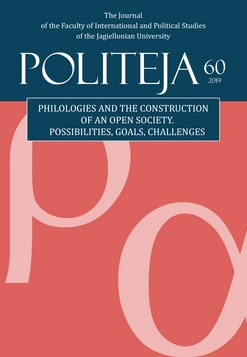Przekład ustny w Państwowym Muzeum Auschwitz-Birkenau (PMAB): warunki pracy, problemy i profil tłumacza
Interpretation at The Auschwitz-Birkenau Memorial and Museum (ABMM): Working Conditions, Problems and Interpreter’s Profile
Author(s): Marta PalecznaSubject(s): Museology & Heritage Studies, History of the Holocaust, History of Antisemitism, Politics of History/Memory
Published by: KSIĘGARNIA AKADEMICKA Sp. z o.o.
Keywords: interpretation; The Auschwitz-Birkenau Memorial and Museum; interpreter;
Summary/Abstract: In 2016 The Auschwitz-Birkenau Memorial and Museum was visited by over 2 million people, of whom over 400 thousand were Polish speakers. The others, over 1.5 million people, heard about the history of the camp from guides speaking their native languages. The largest group consisted of tourists from Great Britain, the United States, Italy, Spain, Israel and Germany. Due to the constantly increasing number of foreign tourists, the ABMM had to face the problem of shortage of guides speaking particular languages. Thus, a more and more popular solution is hiring interpreters who, along with Polish-speaking guides, provide the history of the camp to foreign language tourists. The time of sightseeing the ABMM with a guide is limited, therefore quick decision making regarding the interpretation is of the crucial importance. Basing on surveys carried out among interpreters I would like to present the interpretation at the Auschwitz Museum as an example of intercultural dialogue. Problems which interpreters are faced with and the way these problems are approached have a tremendous impact on the reception of the heard history.
Journal: Politeja - Pismo Wydziału Studiów Międzynarodowych i Politycznych Uniwersytetu Jagiellońskiego
- Issue Year: 16/2019
- Issue No: 60
- Page Range: 167-182
- Page Count: 16
- Language: Polish

